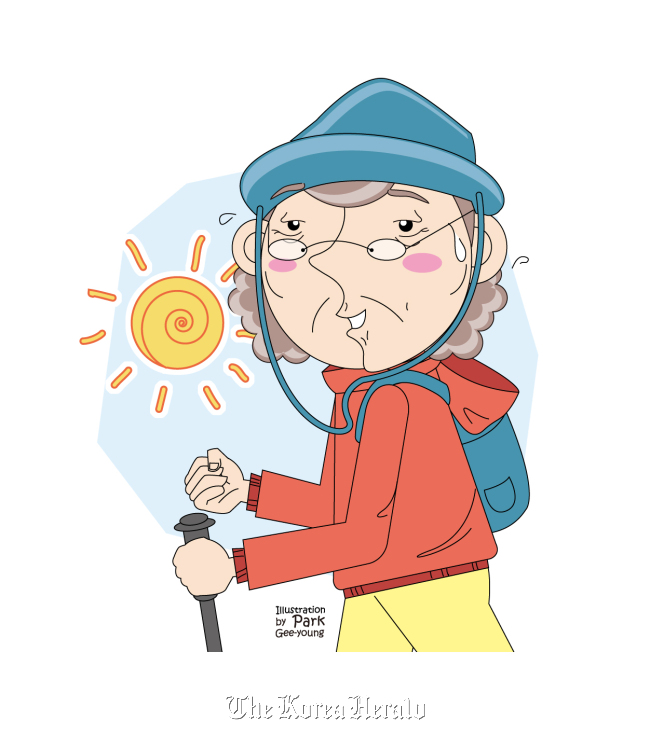
People often make New Year’s resolutions to quit smoking or start regular exercise to improve their health. However, many fail to keep to their resolutions for even a month.
Everyone knows how to keep healthy, but it is no simple task to hold back on things you want and do things you do not like. It is very difficult to keep to your goals without a special motivation when you are tired or busy. If a friend of the same age as you dies suddenly or is diagnosed with a serious disease unexpectedly, you may change your habits for the better.
It is of utmost importance to give someone looking to change their lifestyle motivation through appropriate education rather than a to-do list. Rather than giving clichd instructions, helping them understand medical research results can be more beneficial.
A recent study investigated people’s diets over a long period of time from childhood. It showed that a people with more calcium intake before age 9 maintained stronger bones in old age.
According to a study on exercise and physical activity, less active people and people who reduced their activity with age had a higher death rate after 20 years than those who exercised a lot. Other research reported a close connection between linguistic ability in the early 20s and dementia occurring after the age of 80.
These studies show that young people’s lifestyles can have a significant influence on health in old age and longevity. So, it is not too early for a middle-aged person to start taking care of one’s health aggressively.
The maximum life span of a human being is estimated at between 120 and 130 years. Therefore, living 80 years, which is the average life span of Koreans, means that the person has not lived to their potential.
Generally, if the parents live longer, their descendants also live longer. Knowing that various diseases are genetically inherited, there are many congenital and genetic factors acting on health and longevity. It is believed that genetic factors contribute about 30 percent to the human life span. The remaining 70 percent is due to acquired or environmental factors. These include pollution, emotional stress, physical activity and diet.
What can we do to improve health and longevity? Those suffering from chronic illnesses such as hypertension or diabetes should consult a doctor to prevent progression or complications. People often neglect health care until they get a serious illness. Also, one of the most frequently held misconceptions about diseases is that it is fine to take medication and get treatment once they have contracted an illness. Most lifestyle-related diseases come from inappropriate life habits and diets over a long period of time. They usually do not occur suddenly and they cannot be cured easily by medication. For a healthy life in old age, it is essential to become interested in a healthy lifestyle from one’s youth. It is also good to obtain necessary information for prevention of diseases from doctors and specialists as modern medicine is advancing every day.
There are seven good habits for better health that have been known for many years. These are: 7-8 hours sleep each night, weight control, regular and enough exercise, modest alcohol intake (avoid binge drinking), not smoking, eating breakfast and eating fewer snacks.
These are all things that we already know, but they are difficult to put into action. We all have learned from experiences that daily diet is closely related to health and longevity. There is no need to elaborate on the harmful effects of obesity caused by over-eating, or consuming too much animal fat. It is beneficial to eat a balanced and nutritious diet and eat various fish and cereals. To prevent cancer, it is recommended that you eat at least 5 servings of fresh fruit or vegetables daily.
The importance of exercise has also been emphasized. From 60 onwards, the muscles weaken and most people experience decreased stamina. Exercising is best for preventing declining body function due to aging, and for maintaining stamina.
The most important thing is that it is much more beneficial to start regular exercise now, rather than starting later when you are already older and weaker. It is recommended that you exercise at least 3 times per week for at least 30 minutes. The intensity of exercise should be enough to make you lightly sweat. Cardio-exercises such as jogging, walking fast, aerobics and cycling are all good for strengthening your cardio-respiratory system.
Recently, using weights to exercise has been found to help both women and men, even in very old age.
There are no special recipes or tips to maintain youth and to live a long life. Only those who make the effort to make their future healthy are blessed with health and longevity.
 |
Choi Yoon-ho |
By Choi Yoon-ho, MD Ph.D.
The author is deputy director of the Center for Health Promotion at Samsung Medical Center and a professor of Sungkyunkwan University School of Medicine. ― Ed.








![[Today’s K-pop] Blackpink’s Jennie, Lisa invited to Coachella as solo acts](http://res.heraldm.com/phpwas/restmb_idxmake.php?idx=644&simg=/content/image/2024/11/21/20241121050099_0.jpg)
